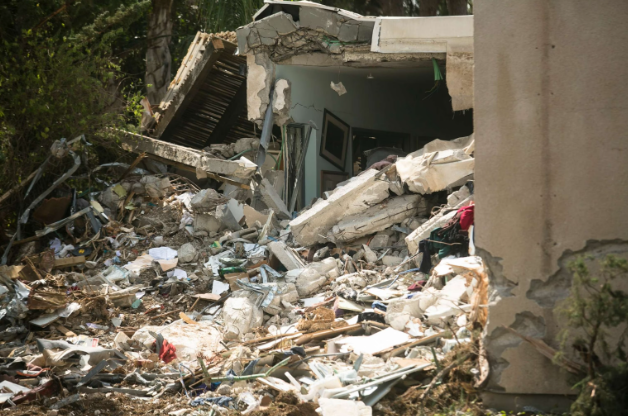Video was part of Israeli military’s effort to document, publicize atrocities.
TEL AVIV, Israel — “You won’t see rape, there’s no rape in this video… We won’t show you beheaded babies,” a senior Israeli officer said to a small group of journalists, saying such images existed but would not be shown.
The journalists were the first to watch a screening of an hour-long reel cobbled together from Hamas helmet cam, mobile phone video, surveillance video, dashboard camera video and victims’ livestreams.
It was part of the Israeli military’s effort to document and call attention to the Oct. 7 atrocities, when the militant group Hamas launched an unprecedented attack on Israel from air, land and sea. More than 1,400 people have died and 3,400 others have been injured in Israel, authorities said. In Gaza, at least 2,750 people have been killed in retaliatory strikes from Israel, and thousands more injured, according to the Palestinian Health Authority.
Journalists were not allowed to record or use the video presented, and our phones were deposited outside the room.
The video started slowly. Hamas fighters are seen on the back of a pickup, with RPGs spiking out in every direction. You can sense their excitement. The video shows several groups cut through the fence and wave a pickup truck through.
Then it shows three separate angles of motorists in Israel being flagged down, then gunned down — the AK-47s puffing smoke — on the road outside the Kfar Aza and Be’eri kibbutzim. Bodies are yanked out of cars.
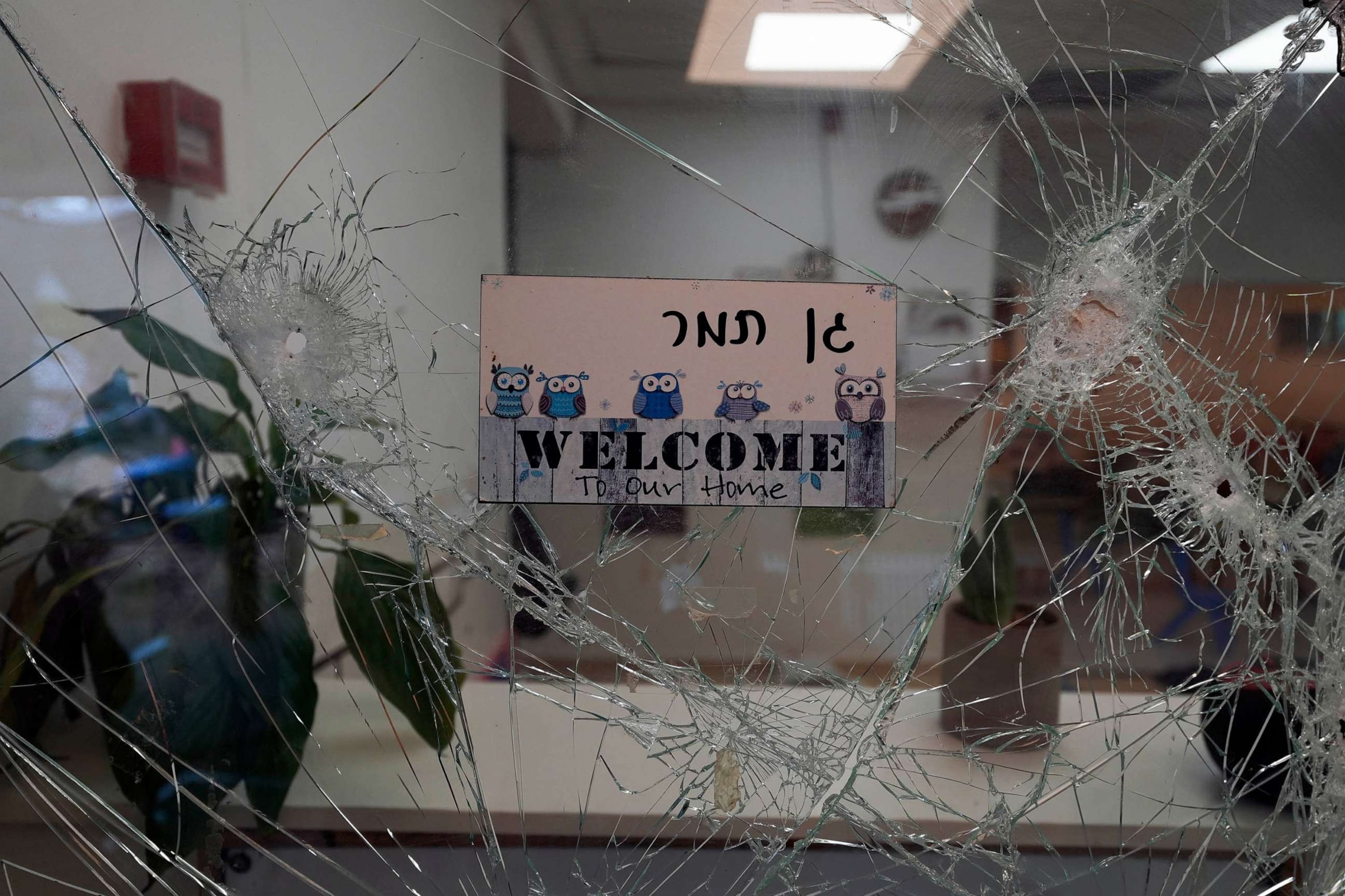
Then a pair of attackers in Be’eri is shown. For several minutes, we watch as they amble around the kibbutz. They poke into one house and you can hear someone’s alarm going off. It’s 8 a.m. You can hear them breathing heavily. The one wearing the body camera has a high, soft-spoken voice that seems to belie his mission.
At a playground, he wonders in Arabic, “Where are the kids?” The duo set fire to one house, shoot an encroaching dog, and shoot another old man through a darkened screen. They are parsimonious with their ammunition, and chillingly unhurried as they pick through the tidy vegetable gardens and open the latches of wooden fences.
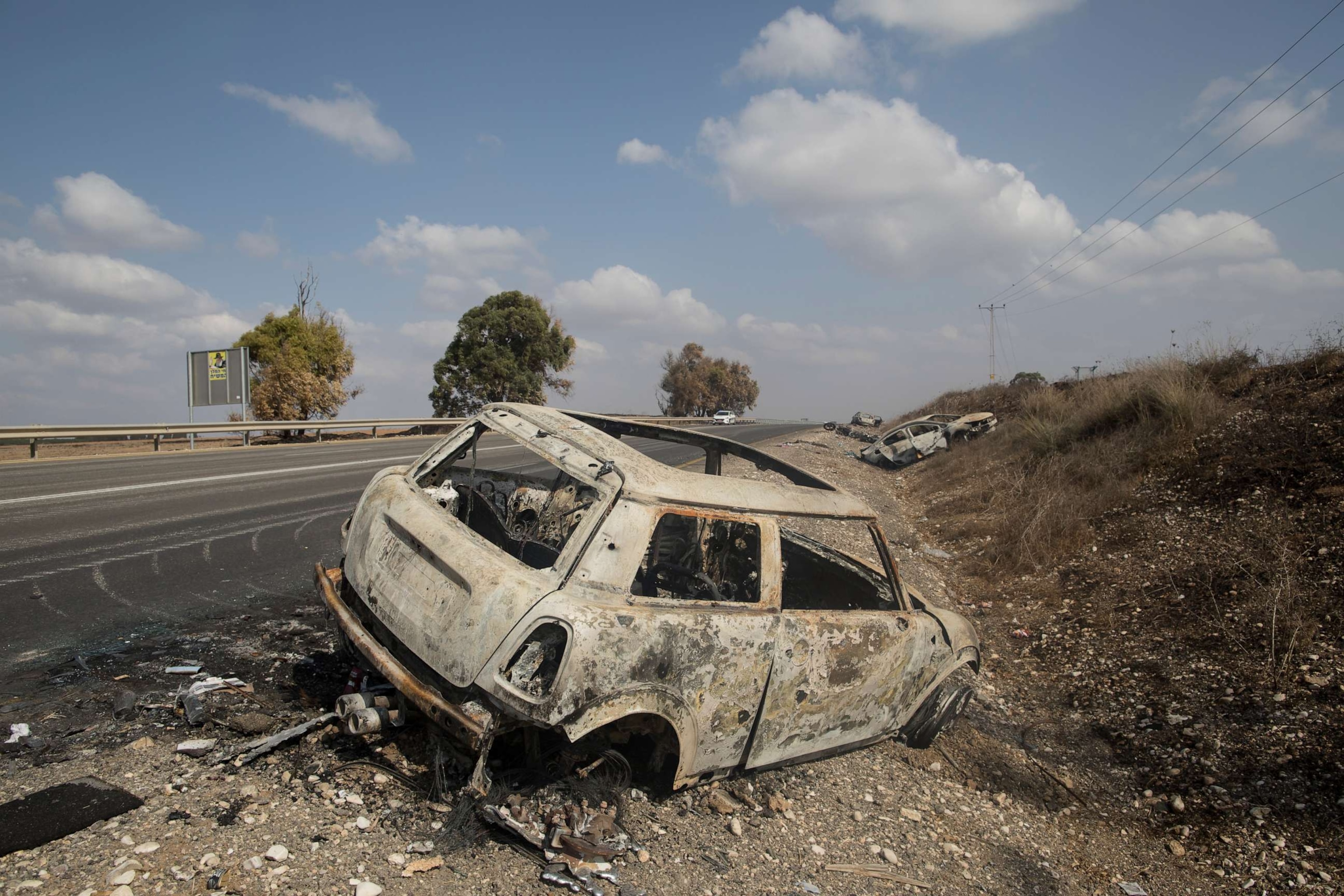
Then the video gets grisly. Other militants are busy mashing a dying man’s face with their boots. Another pair screams “Allahu akbar” as they use a garden hoe to try to decapitate another man.
In another house, a gunman sticks the muzzle of his rifle into a room inhabited by a family. It’s a mash of colors. In one, a terrorist is standing on an Israeli man’s chest and shoots him point-blank in the face.
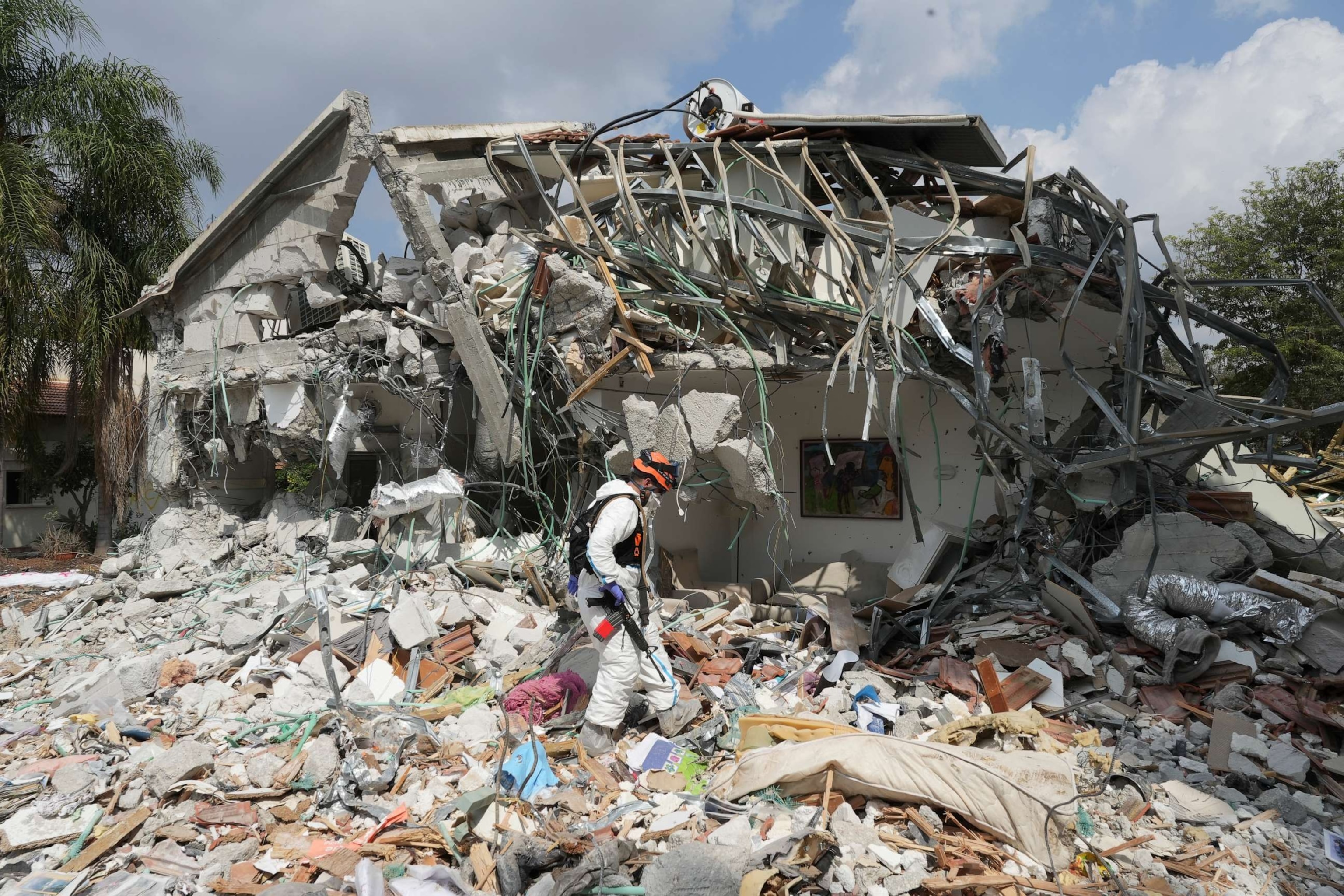
Then, the scenes of bloodied bedrooms start to blur. The rooms and the gore are the same — it’s how the bodies are arrayed in death that’s different. There are so many children. Some are jam-packed together in a slippery mass of human flesh. Huge blood stains streak the tiles.
So many of the bodies are burnt. It was unclear if this was because they were set fire to or if it was from the grenade blasts. Other videos show Israeli first responders trying to put out the still-smoldering skeletal remains of victims — with water bottles, as if watering a parched plant.
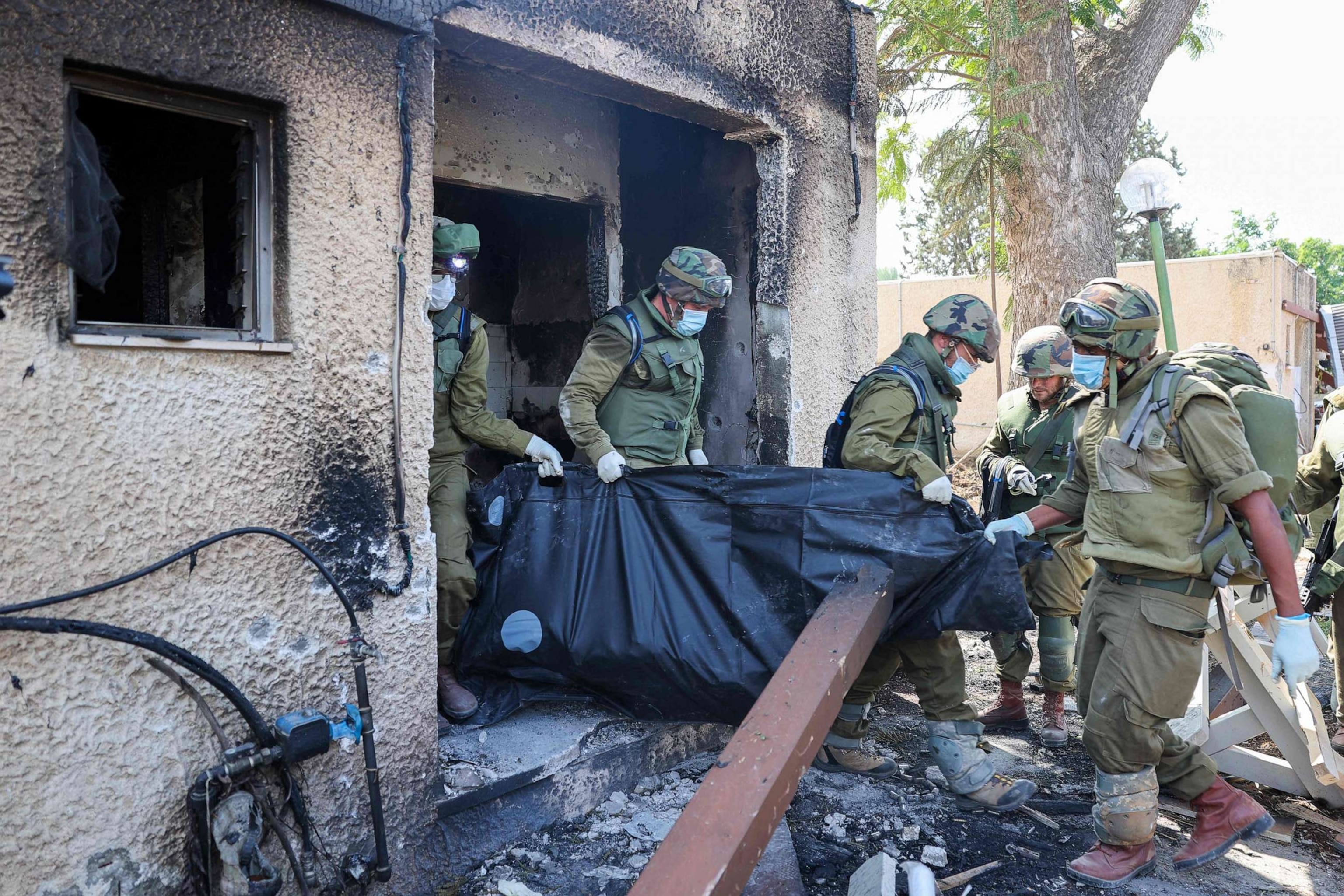

In another video, a grenade was apparently tossed into one of the bomb shelters that line the roads in southern Israel. It was filled with partygoers who’d left the Supernova music festival. The camera shows a flash of limbs, some dismembered, some still attached to writhing, screaming bodies. A selfie camera shows a young man weeping, while someone croaks hoarsely in the background, “help, help.” Hamas then drags survivors out, some by their hair, to trucks, and then batters them some more in the backs of the pickups on the way to Gaza.
Forensic images show bodies burned in cars, on beds, on the streets and in the fields in various states of incineration.
One video shows the sheer number of Hamas attackers at the Supernova festival. There’s no way they hadn’t planned to raid the party. Those were some of the most professional and well-equipped fighters we saw in the video. Some of them are wearing police uniforms, others are in military uniforms.
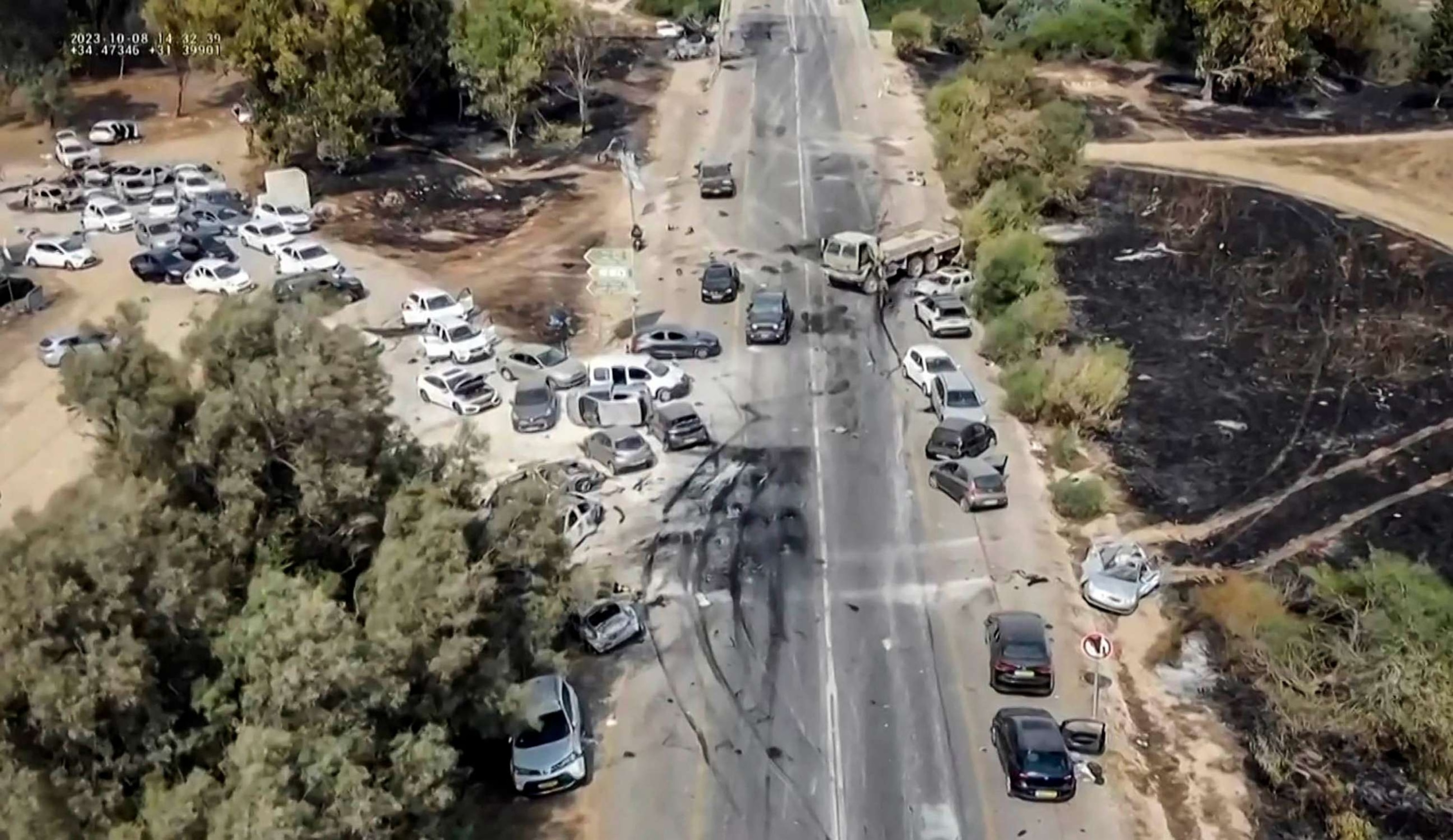
There’s a video from inside Israel’s main base bordering Gaza. A group of about 20 young Israel women in pajamas cower in an outdoor concrete duck-and-cover. The female soldiers are unarmed and are screaming at the sound of the bullets and the explosions. Then, at one point, the girl shooting the selfie video sees an armed man on the far side of the shelter. She asks, “Who is that man?” He’s a Hamas fighter, calmly standing there. Then the video ends.
Hamas attacks progressed inside the base. They shoot up an office. Soldiers squirm and try to fight; they’re shot, too. The attackers grab two M4s.
Outside, soldiers are decapitated. Otherwise, the bodies seem untouched. The heads were not in the images.
I asked how many weapons and Israel Defense Forces uniforms Hamas managed to make off with; the senior official would not say. I asked if it would hamper the fight and risk friendly fire; he said it wouldn’t. But one cannot help but think that’s not true — men armed with Israeli weapons, in Israeli uniforms fighting in the street could indeed wreak havoc.
